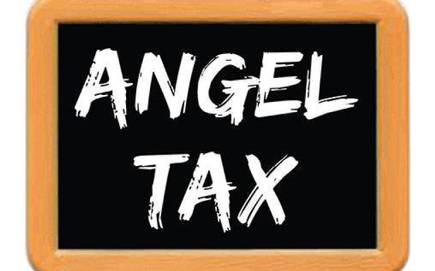Will this fiscal budget succumb Angel Tax?
Various news and articles have bought a ray of hope among the entrepreneurs and startups for the overhaul in the tax provisions relating to the shares issued by startups at a price above their face value (i.e. issue of shares at premium) i.e. Taxing the money infused in startups by Angels i.e. Investors
Lets talk about the history and issue of Angel tax!
(A) Reason of taxing issue of shares?
Government brought to tax the excess of share premium over fair market value of shares received by a Company on issue of shares as Income from Other sources in the hands of company w.e.f. Finance Act 2012. However, a specific exemption was introduced for issue of shares to a venture capital undertaking i.e. a venture capital company or a venture capital fund.
The sole purpose of such as provisions was to use it as a measure to prevent generation and circulation of unaccounted money in corporations.
This money was untraceable and could not be taxed unless tax authorities assess shareholders and call historical records.
(B) Chronology of events resulting into Angel Tax Issue:
Finance Act 2012: Introduction of tax on share premium exceeding FMV of shares.
February 2016: Startup regime was introduced viz. economic goals being the core of the Modi government, including ease of doing business, promoting foreign investment, and entrepreneurship as purpose, however until then the issue was not in highlights due to limited startups in country.
April 6, 2018: DIPP published a status report on the Startup India scheme on April 6, 2018 discussing about success of Startup regime.
April 11, 2018: DIPP came out with a notifications w.r.t. certain additional benefits to be granted to Startups under the regime viz.
- exemption from income taxes upto 3 years,
- Granting of exemption from applicability of section 56(2)(viib) subject to fulfilment of certain conditions i.e.
- Aggregate amount of capital and share premium should not exceed Rs. 10 crore
- Investor’s returned income > Rs. 25 lakhs or Net worth> Rs. 2 cr. for past 3 years
- Valuation Report needed from a banker as per Rule 11UA of Income Taxes.
January 16, 2019: DIPP issued a new notification raising the eligibility of Investors form income of Rs. 25 Lakhs to Rs. 50 lakhs and a reference that CBDT may within a period of 45 days from the date of receipt of application from DIPP grant approval to the Startup for the purposes of angel tax and there is no need for any inter-ministerial board for seeking exemption. Condition for providing valuation report was given way.
(C) Issue or debate?
Income tax Act allows a Pvt. Ltd. Co. to prove the value of shares at the time of raising of capital on either of the following methodologies:
- 11UA Value: i.e. based on net worth
- Based on estimated future cash flows (DCF)
However, taxmen are questioning the premium paid by angel investors over 11UA value. Also, issue becomes a pain because startups seek capital based on their expected cashflows (i.e. on high end side), however taxmen are comparing valuations with the actuals claiming it to be flawed, thereby deeming the capital in excess of the fair market value taxable @ 30% (Angel Tax).
Even in cases where investor is not Indian, the tax department has in the past issued notices branding such investments as “unexplained cash credits” and charging tax.
(D) Implications:
This is a setback for Startups in the country as they rely majorly on cash pumped in by the investor for the working as well as strategic needs which calls for series of fund raising.
Fund raising mechanism: Like every business deal, funds are raised as per the agreed ratio that a startup is willing to dilute in the round of funding and what investor agrees basis the calculation certified by a banker.
Due to the tiff between cashflows and net worth, taxmen raise demands for exceeding valuation and compare the actuals with the estimates.
(E) Possible and granted relief by Tax Authorities:
Even though CBDT has come up with its guidance to officers to not use any coercive measures to recover tax demands, however in order to provide complete relief it is yet to come up with a formal circular to relieve the victimised startups from orders issues in past and provide them with a resolution for future.
(F) What is expected in Finance Act 2019 and why?
Government itself introduced a scheme for startups and having such an issue can be a havoc to entire regime. It is believed that brainstormings session are ongoing within the ministry and certain relief would be provided, however, predictions do not come with a guarantee. Also, there is no precedent scrapping the orders issued in past except cases where courts/ higher authorities have intervened or reassessments have been made based on retrospective change in law.
It is expected that a change will be introduced but the probability of it being retrospective is like forecasting sunlight on a rainy day!
Regards,
TheTaxTellers Team

